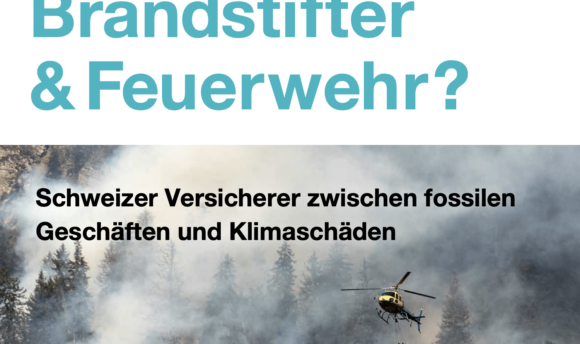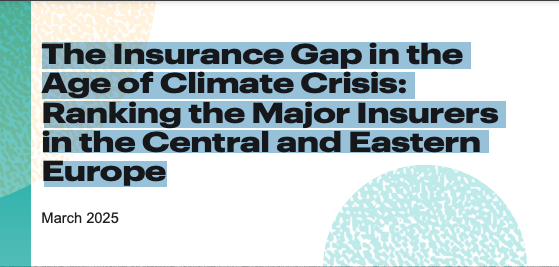Today, Swiss Re, the world’s second largest reinsurer, announced an enhanced oil and gas policy which brings new momentum to the insurance industry’s shift away from fossil fuels. Insure Our Future welcomes that Swiss Re is the first major oil and gas insurer to adopt a policy for the sector which excludes insurance for most new oil and gas projects; expresses an ambition that by 2025 half, and by 2030 all, of its oil and gas premiums will come from companies with credible net zero plans; and commits to develop an oil and gas policy for its treaty business by 2023.
Swiss Re’s policy is the latest amongst a number of its counterparts who have recently adopted oil and gas exit policies. Last week, both Hannover Re (pg. 74-75) and MAPFRE (pg. 51 for investment and pg. 55-56 for underwriting), which together account for 11% of global non-life reinsurance premiums, adopted significant oil and gas policies which were also welcomed by Insure Our Future.
"Swiss Re is one of the world's ultimate risk managers and the policy which it published today sends a strong message to fossil fuel companies, investors and governments: oil and gas operations need to be phased out in accordance with climate science or they may become uninsurable by the end of the decade. Now, the Insure Our Future campaign calls on Munich Re, Lloyd's and SCOR, which together account for 26% of the global reinsurance market, to make commitments which build on Swiss Re's approach by the time of their annual general meetings."
"By taking steps to stop insuring new oil and gas projects and companies that won't aim at aligning their activities with climate science by 2030, Swiss Re is headed in the right direction. The policy is not perfect yet and we encourage its peers to build on it to fully align with a realistic 1.5°C scenario. As the IEA Net Zero Roadmap shows, this should mean drawing a red line against fossil fuel expansion and excluding both projects and companies that cross that line well before 2025."
NOTES:
See Swiss Re’s Enhanced Oil & Gas Policy on page 34.
Swiss Re’s policy includes the following strong elements:
- Excludes insurance and investment for all new oil and gas field projects with a Final Investment Decision (FID) approved after 2022, (even if it allows for exceptions for oil and gas companies with credible net-zero plans).
- Commits to reducing its support not only for oil and gas companies in the upstream and midstream, but also in the downstream sector (utilities, refineries, etc) by expressing an ambition that by 2025 it will derive half of its oil and gas sectors premiums from companies credibly aligned with net-zero goals, and for that by 2030 it will only do business with credibly net zero aligned companies in the sector.
- Announces it will start work on its approach to the exclusion of oil & gas from treaty reinsurance business, and that it will communicate details of its approach in 2023.
While Swiss Re’s oil and gas policy is welcome, the new policy includes the following significant gaps:
- The Swiss Re policy hinges on the development of a credible oil and gas framework by the SBTi, or a comparable, credible third-party assessment, which fully reflects the findings of the relevant reports and models of the IPCC, IEA and OECM. The SBTi framework will need to rule out new oil and gas production and define clear timelines for the rapid phase-out of these fossil fuels.
- New Arctic drilling exclusions: Threshold lowered to companies with more than 10% of their production based in the Arctic region. However, this does not rule out all support for oil and gas projects in the Arctic. The Arctic definition is based on the Arctic AMAP region, which is good, but it makes an exception for the Norwegian sector.



